The future-proof grad
[18 November 2018, The STAR]
UTP prepares graduates to be agile and versatile for a brand new, rapidly changing world with unprecedented workforce disruptions
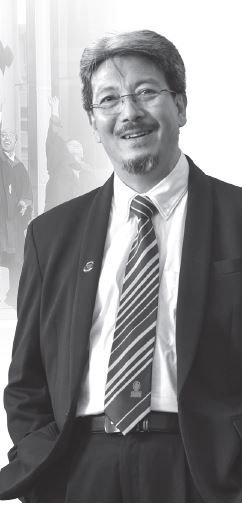 TODAY, 1,659 graduates will receive their scrolls at Universiti Teknologi PETRONAS’ (UTP) spectacular 2018 convocation. For every one of them, this is the season to celebrate the pinnacle of their academic achievement. For parents, the convocation is an emotionally charged event as it represents a major milestone for them too. Few events in family life bear the triumphant power of a turning point the way a graduation does.
TODAY, 1,659 graduates will receive their scrolls at Universiti Teknologi PETRONAS’ (UTP) spectacular 2018 convocation. For every one of them, this is the season to celebrate the pinnacle of their academic achievement. For parents, the convocation is an emotionally charged event as it represents a major milestone for them too. Few events in family life bear the triumphant power of a turning point the way a graduation does.
As they leave campus, this year’s grads will face unprecedented workforce disruptions and a job landscape that is more fluid than ever before in history. It’s already a given that about a quarter of today’s jobs will not exist by the next decade, a good number of future jobs have not been heard of yet, the most versatile of their peers will be in the gig economy, and the cleverest innovations will be connected to the circular economy.
But they will be prepared because this year’s batch of UTP graduates is more future-proofed than ever before. "So jobs may become redundant but our graduates won’t," says Professor Dr Mohamed Ibrahim Abdul Mutalib, Vice Chancellor of UTP. "We work at making them future-proof."
The key to that lies in the way they are learning. In 2014, UTP strategically moved from teacher-centred learning to student-centred learning. The university’s Centre for Excellence in Teaching and Learning (CETaL) carved new trails to bring excitement to lecture halls and made learning challenging and fun. Lecturers were retrained to become facilitators of self-directed learning and soon undergraduates began asking for more activity-based learning.
No more plain old lecture. Instead, students are required to engage one another, even as a lecture progresses. Their projects have enough complexity for challenging group work, and in problem-based learning, students figure out on their own what they need to read up as they solve the problem.
UTP wants to ready its graduates for an entirely new kind of world, and be at the forefront of emerging technology breakthroughs in fields like nanotechnology, artificial intelligence, robotics, biotechnology, materials science, quantum computing and the Internet of Things.
Also, they need to fit in with Industry 4.0, the technological wave unfolding right now in which automation and computers come together in an entirely new way. For the first time, the fusion of technologies is blurring the lines between the physical, digital and biological spheres. To meet the needs of that complex future, UTP has created roadmaps for changing technology and has already introduced new components into its programmes.
The bottomline of that scenario is that today’s graduate will need to spend his entire career relearning, unlearning, reskilling and upskilling. "Lifelong learning is one of the seven attributes we build into a well-rounded graduate," says Ibrahim.
The other six – technical competence, critical thinking, communications and behavioural skills, business acumen, practical aptitude and solution synthesis ability – address the fundamentals and leadership potential. UTP’s position is that all of its graduates are groomed to lead in their chosen fields. "And to be at the frontiers of breakthrough research and to generate and drive trends," says Ibrahim. "Our grads are in leadership positions in many sectors serving industry and society and offering thought leadership too."
A frontrunning example of this is UTP alumnus Yeo Bee Yin who at 35 is Malaysia’s Minister of Energy, Science, Technology and Climate Change. She is leading the change agenda for her portfolio with refreshing candour.
Creating homegrown leaders for the nation is a part of future-proofing. Much of the drive for leadership and adaptability has its roots in UTP’s early days. During its formation, the visionaries at PETRONAS created masterplans which embedded response to the changing needs of the world as a responsibility, and provided mechanisms for the university to shift its focus when needed. In recent years, for example, UTP has vastly expanded its IT programmes to accommodate tech developments and business trends.
"Our size makes us agile," says Ibrahim. "We’re not too big. This means moving forward is not hard to do. We have worked hard persistently at making sure our campus is truly conducive for learning and growing."
It’s already showing. With incremental gains over the years, UTP is Malaysia’s top private university as it’s in the top 100 in the 2019 edition of the QS University Rankings: Asia. It ranked 99th compared with 101st previously.
A campus of meaningful moments
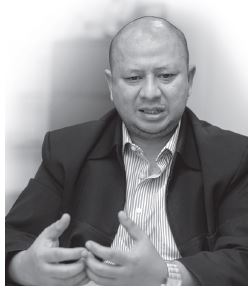 RIGHT now, UTP’s entire undergraduate enrolment is made up of millennials and Gen Z, by reputation the most demanding and discerning cohort in history. They are known to be global citizens, civic-oriented, transparent, and tech savvy which means they won’t tolerate anything less than full access high speed internet. Even their communication style is different: they aren’t likely to reply your email but may drop a bombshell on social media.
RIGHT now, UTP’s entire undergraduate enrolment is made up of millennials and Gen Z, by reputation the most demanding and discerning cohort in history. They are known to be global citizens, civic-oriented, transparent, and tech savvy which means they won’t tolerate anything less than full access high speed internet. Even their communication style is different: they aren’t likely to reply your email but may drop a bombshell on social media.
"It’s important that they have the best three or four years here," says Associate Professor Dr Nor Hisham Hamid, Deputy Vice Chancellor Student Affairs and Alumni of UTP. "Our campus has evolved to match the needs of this and future generations of students. We create enriching, rewarding and transformative learning experiences for them and for the community."
UTP’s mandatory internship programme is an immersion into real-life work experience where they have to collaborate with others, organise their lives, cope with deadlines, make presentations, and speak at meetings and decision-making processes.
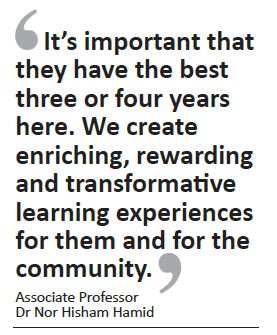
An overseas trip is also mandatory. It could be a learning experience, a conference or even a social project like installing solar energy panels in a remote village in Pekanbaru, Indonesia, or teaching English to children in Narathiwat, Thailand. Given the borderless nature of the current undergraduate generation, this gels easily with them.
Back on campus, they are required to work in partnership with industry, government, themselves and the university to benefit the local community (there are several traditional villages near the university). Using the findings of UTP researchers, undergraduates are expected to develop projects and collaborate with partners. Projects typically address education, environmental and socio-economic needs and the students get a first-hand insight into the needs of the elderly, poor and various marginalised groups.
"The combined effect of these experiences is a well-rounded graduate," says Nor Hisham. "The seven attributes are anchored on values of collegiality, accountability, adaptability, integrity and respect. Trust is going to be an important quality in their lives and careers. Our students graduate with a feeling of confidence to be a part of a rapidly changing world."
" 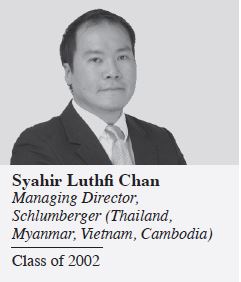 Your success in a borderless world depends on how well and how quickly you adapt to new environments. In the future, change will occur at much faster rates. In a nutshell, being adaptive means high EQ, and UTP provides a good dose of this through its courses and activities.
Your success in a borderless world depends on how well and how quickly you adapt to new environments. In the future, change will occur at much faster rates. In a nutshell, being adaptive means high EQ, and UTP provides a good dose of this through its courses and activities.
Look for inspiration, mentors and role models. Find work buddies who use every free moment to learn something new and become lifelong friends with them. Share and coach one another. Improve yourself every day, keep learning and embrace change because it’s inevitable. Understand yourself and others. "
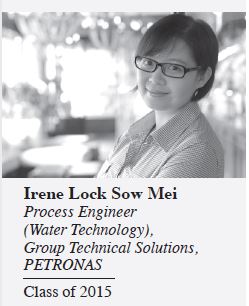 Employability is highly dependent on your willingness to accept new challenges and to adapt to different work requirements. You will need strong technical and professional competencies, to demonstrate good attitude, possess good work ethic, and to work independently and collaboratively to solve problems in creative ways.
Employability is highly dependent on your willingness to accept new challenges and to adapt to different work requirements. You will need strong technical and professional competencies, to demonstrate good attitude, possess good work ethic, and to work independently and collaboratively to solve problems in creative ways.
To remain competitive in engineering, it is important for engineers to exhibit outstanding leadership qualities and be prepared for lifelong learning. It is very important to constantly remind ourselves that our main responsibility is to contribute at every level to build sustainable societies for the well-being of its members.

